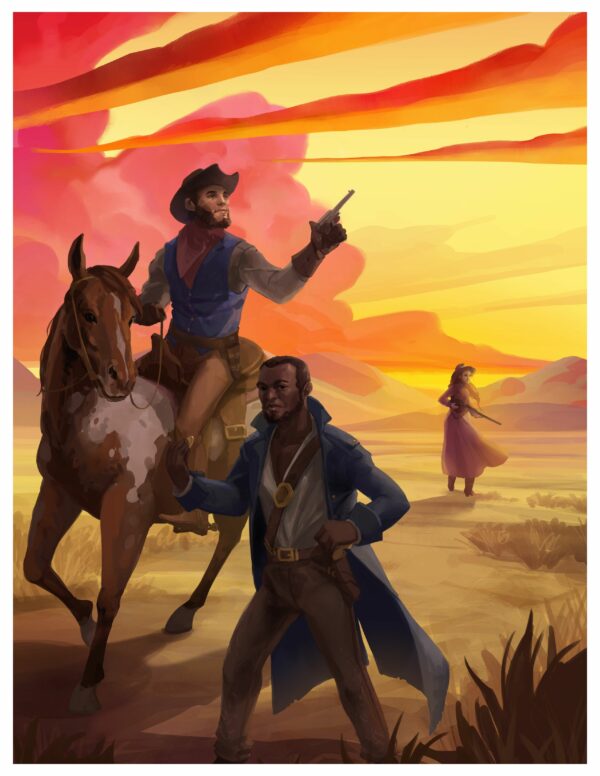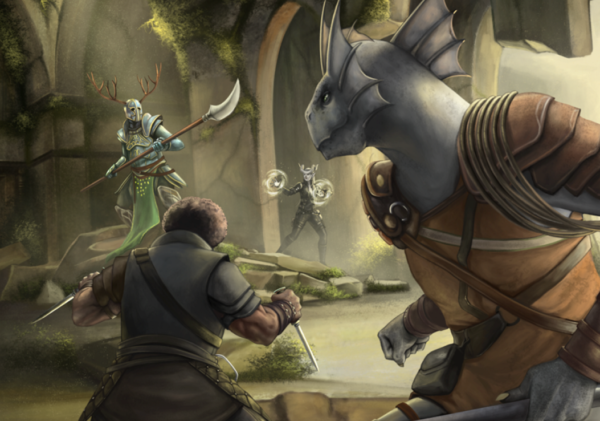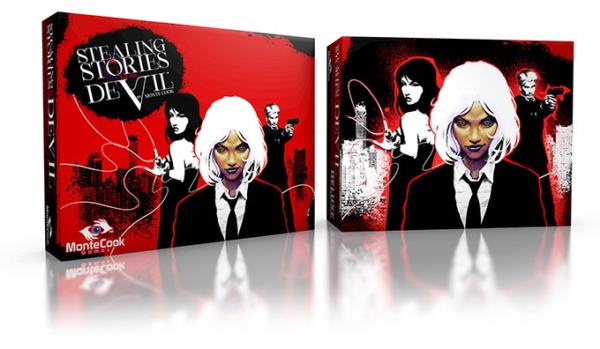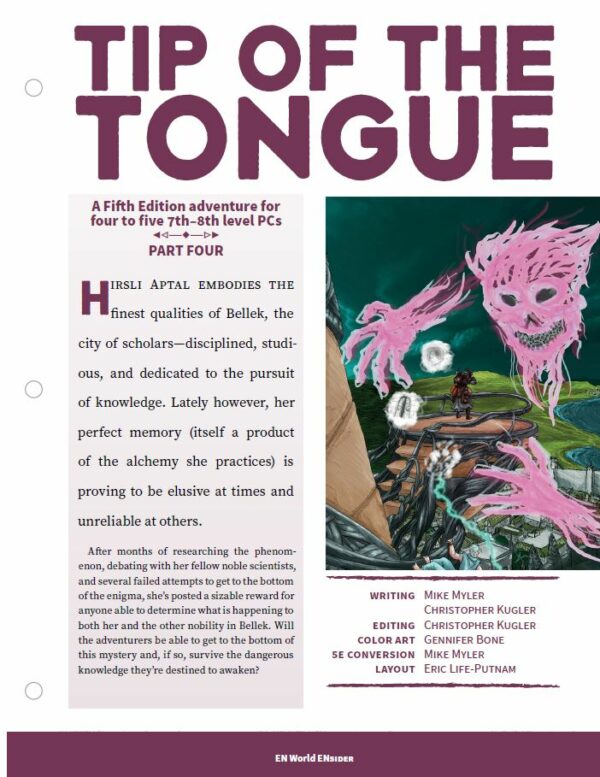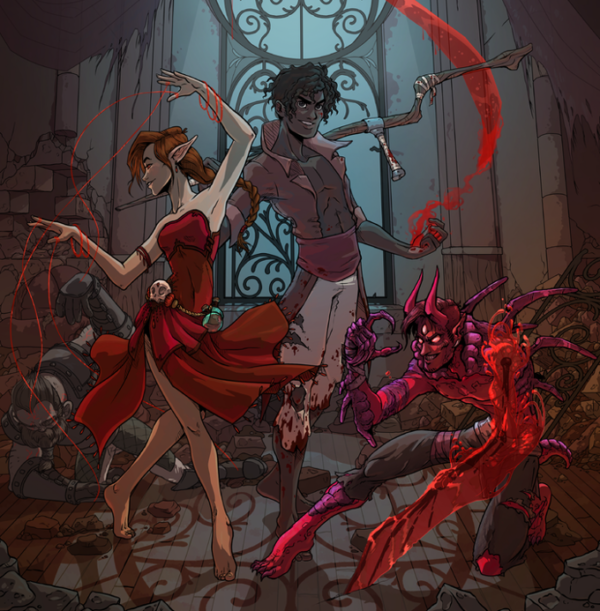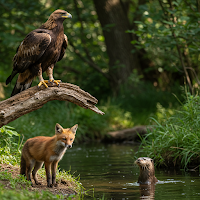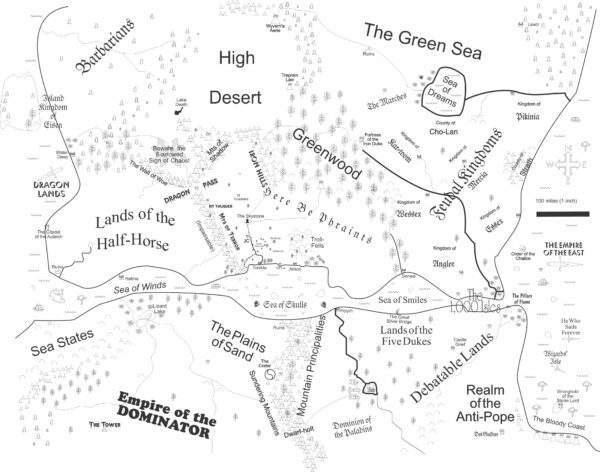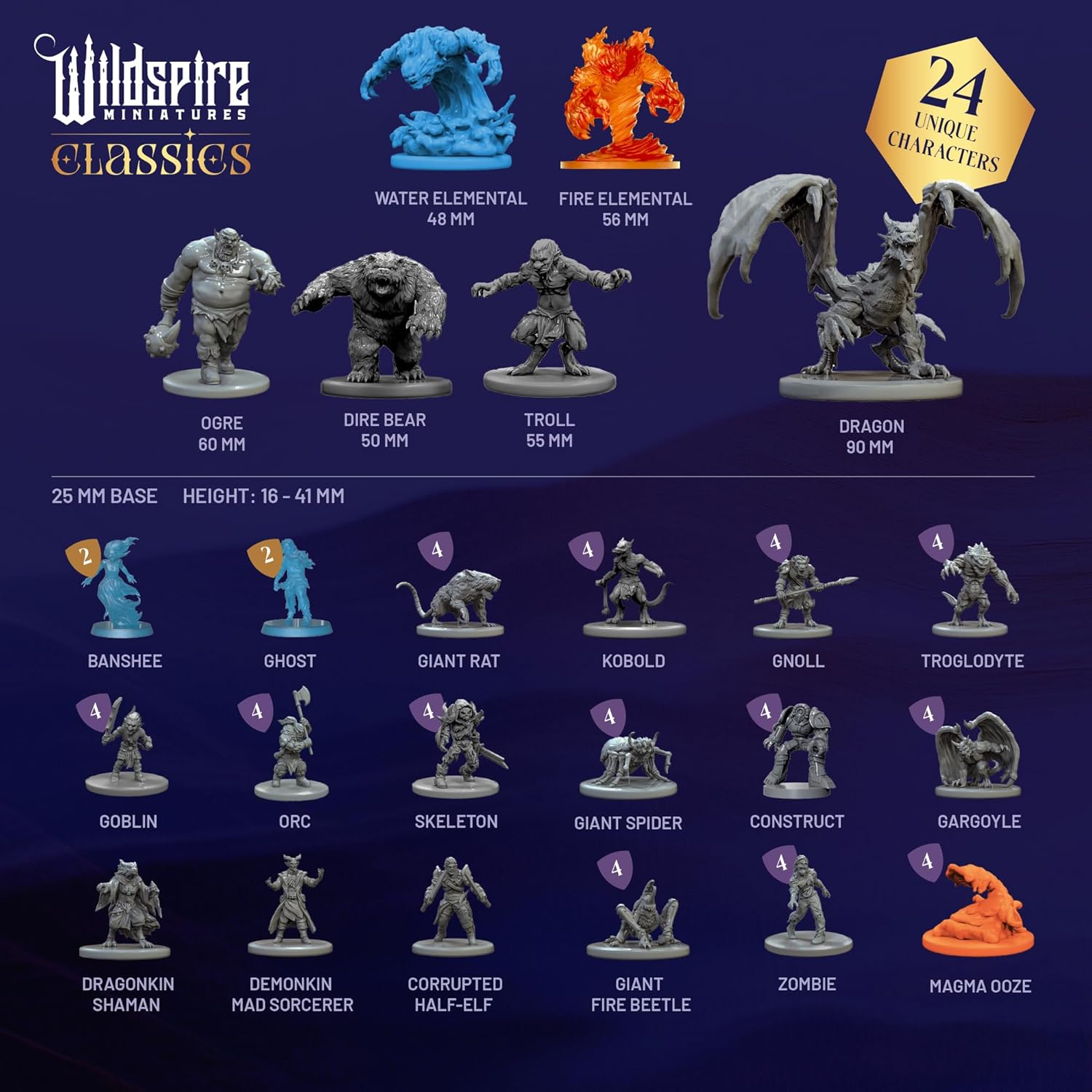
The era of bulk unpainted miniatures, once dominated by companies like Reaper with their Bones line, is over. Smaller companies are now creating their own miniatures and while they may not have quite as much detail, they are certainly good enough — and they can be a surprisingly reasonable deal for DMs just starting out.
Classic Encounters – Essential Set
This is Wildspire’s foundational set of miniatures — 65 for 40 bucks. The goal is to simply give you everything a DM needs to start out.
The miniatures are made from a mix of hard PVC and ABS plastic, unpainted, and unprimed. There is one huge miniature, a generic dragon that can work for most Dungeons & Dragons-style chromatics, depending on how you paint it. There are several Large minis: a water elemental (blue transparent) fire elemental (red transparent), ogre, dire bera, and troll. The troll lacks the trademark D&D troll nose but that’s probably on purpose.
Of the Mediums, you get two blue transparent figs, two of each: a banshee and ghost. There’s also a red transparent magma ooze (which isn’t a thing in D&D). There are four each of five Small miniatures: giant rat, kobold, giant spider, goblin, and giant fire beetle. Curiously, there are no Small giant spiders (giant Spiders are large, wolf spiders are Medium).
The rest are the bulk of the set and what most DMs likely want the set for, four of each: gnolls, troglodytes, orcs, skeletons, “constructs,” gargoyles, dragonkin (dragonborn) shamans, demonkin (tiefling) mad sorcerers, corrupted half-elf, and zombies. Of those, the gnolls, troglodytes, orcs, skeletons, gargoyles, and zombies will round out a DM’s arsenal nicely. The others (dragonkin, demonkin, half-elf) are more likely PCs or NPC villains. The constructs are an odd case since there isn’t many Medium-sized golems made of metal/stone in the core rules, but once you branch out to other books they likely have more utility.
Add this all up and it’s a decent combination of miniatures for DMs who are just getting started. As usual, there are some odd choices (I’m looking at you, giant spider, magma ooze, and “constructs.” But there are more useful critters than oddities, and that makes this set a good buy for most campaigns.
Classic Encounters – Expansion Set I
You get 60 miniatures for a reasonable price, which is always a plus. The set includes a variety of classic and recognizable monsters and characters that are common in D&D games. The set includes one huge miniature (a female hill giant). It comes with four large creatures (acid elemental, earth elemental, air elemental, and naga — for some reason no fire elemental). It’s not clear why there’s no fire elemental, and the water elemental style figure is “acid” because it’s made of transparent green plastic. The air elemental is made of transparent plastic, as it should be.
The rest of the set is the medium critters. There’s four green-transparent oozes, and three transparent “gas serpents” (who needs these things?). There are four of everything else: harpies, boars, unholy knights, ghouls, bugbears, werewolves, bandits, cultists, and mummies. Then there are four of things that don’t match their Fifth Edition Dungeons & Dragons equivalents: giant worms that are Medium-sized (there are no giant worms that are this size, carrion crawlers are Large, giant centipedes are Small); dire wolves (should be Large), and imps (should be Small).
I’m never sure why these decisions are made as to which miniatures make it into the set, but presumably it’s a cost calculation. Some monsters are rare enough you don’t need that many (who needs four mummies?), others just simply the wrong size. On the positive side, the large figures are great with the hill giant and its elemental and naga brethren a highlight. The harpies, boars, knights, ghouls, bugbears, werewolves, and bandits are excellent. The rest… either aren’t the right size or don’t represent a common monster. Add all that up, and this set is still pretty useful, and if you are using them in other games you might find more use for the outliers.
Monsters, Mimics, & Mysteries
This set by Underdusk features 34 miniatures. The set is divided between 17 creatures and 17 objects. It’s not just a collection of the usual goblins and orcs; you get a range of creatures:
- 5 Mimics: Presented in both their disguised and monstrous forms (so 10 miniatures for 5 mimics). Mimics are fun as miniatures but probably show up maybe once or twice in an entire campaign, and are very specific circumstances (that is, I doubt I need a mimic jack-o-lantern, but fun to paint in any case).
- 7 Mysterious Objects: Random stuff like a cauldron, dragon skull, coffin, pile of bones, dragon eggs and a swirling portal.
- 1 Small newt humanoid (aqualix)
- 4 Medium fiends, one with a sickle, a spellcaster, a knight on a fiendish horse, and Krampus! Most games probably don’t have much use for Krampus, but hey he’s here with his bag (no whip though)
- 6 Medium humanoids of various types, including dragonborn, tabaxi, a wizard, a female satyr with a wooden harp, a gnoll, and an orc/minotaur
- 4 other Medium-sized monsters, including a myconid, a critter that could be a fiend (it’s listed as fey), and looks like a malformed blob creature, a mutant with an additional mouth on its shoulder, a thing that looks like a gourd with a face, or perhaps a galeb duhr (it’s listed as a monstrosity), and a mind flayer
- 1 Large chimera, modeled after the traditional D&D version but splitting the difference with its mythological roots — it has both a dragon head AND a snake tail.
Moreover, Underdusk provides digital backstories and stat blocks for each creature, making them truly game-ready and easily integrated into your storytelling. The size compatibility also seems well-considered, with the exception of the horseman, who isn’t quite the right size for his mount.
While I appreciate the provided pictures and statistics, which also acts as a painting guide, the stat block are all over the place. As one example, Belladonna is referenced as a Hellfire Commander, Hellfire Stalker, and Hellish Harbinger. She’s listed as a demon, not a fiend, and “sythe” is spelled incorrectly.
Underdusk produces a lot of sets, and they are best used to fill out monsters a DM may like in their roster; these are mostly too unique to be that useful. The chimera is the standout, but even then it’s not modeled after the traditional chimera. Most of the other monsters are so unique-looking that they likely have very specific use cases. If you’re fond of mimics or Krampus though, this set will likely scratch that itch. For DMs just looking for more critters to round our their arsenal, there are more broadly useful sets from Underdark.
You can purchase these products at Amazon: Classic Encounters – Essential Set, Classic Encounters – Expansion Set I, and Monsters, Mimics & Mysteries. Please note that I’m a participant in the Amazon Services LLC Associates Program, an affiliate advertising program designed to provide a means for sites to earn advertising fees by advertising and linking to Amazon.com. Spend less. Smile more..


